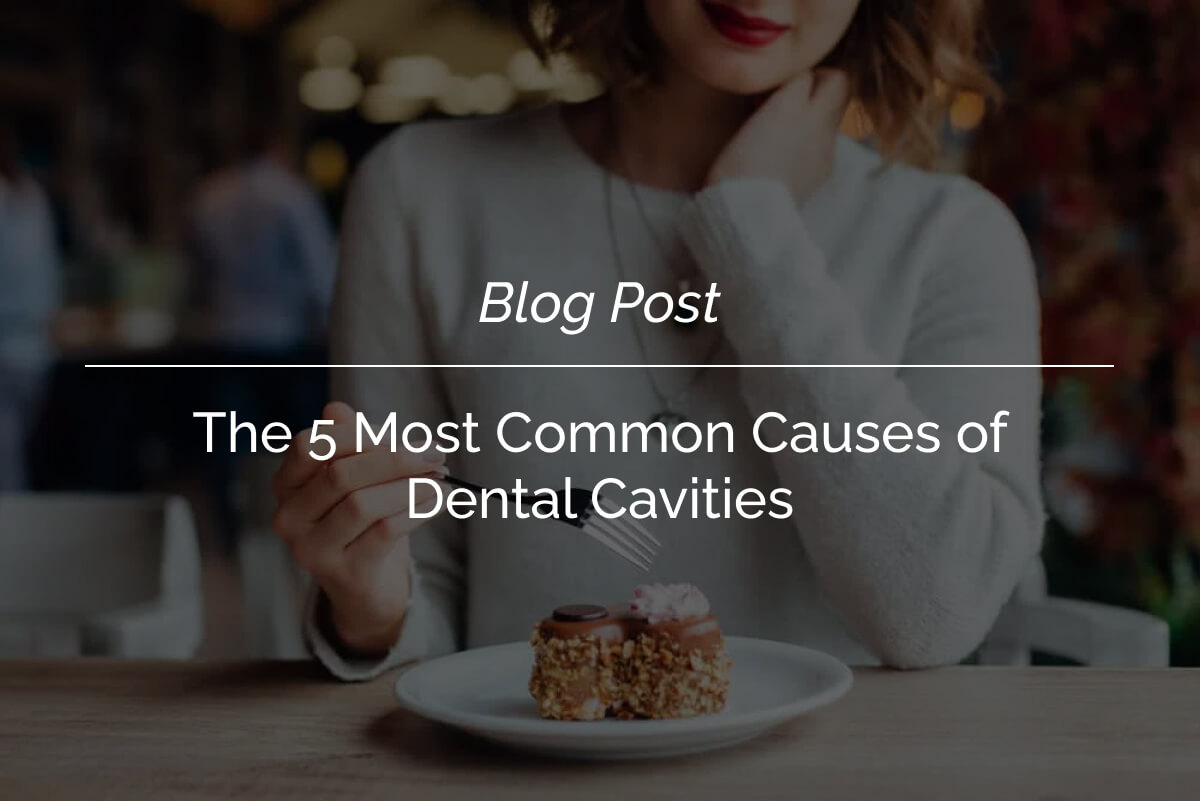A cavity is a hole that forms in a tooth as the enamel (the hard outer coating) and dentin (the inner layer) decays. Cavities are one of the most common dental conditions and everyone is at risk, from infants to children, teenagers and adults. The damage worsens if untreated and can lead to further dental problems, like periodontitis and other types of gum disease.
Cavity Treatments
Depending on the severity of the cavity and your dental health, a few options are available. The most common treatments for cavities are fillings and crowns, however, if the decay is more extensive or the surrounding area is affected due to infection or gum disease, a root canal or tooth extraction may be required. Consequently, if you have a cavity, you need to see a dentist. Here are five of the most common causes of cavities.
Plaque
Plaque, a sticky film that covers your teeth and hardens into tartar, is caused by not cleaning your teeth properly, consuming a lot of sugary foods and drinks, or as is the case for many children and teenagers, a combination of the two. Plaque forms when starches and sugars aren’t removed from the teeth and bacteria turns them into plaque, which in turn hardens and becomes tartar. Tartar can’t be removed with a regular toothbrush, only with special dental tools, which is why regular dental checkups are so important to preventing cavities.
Diet
It isn’t only foods that are high in refined sugar, like soft drinks, ice cream and sweets that can cause tooth decay, as even natural foods like milk, honey and dried fruits that cling to your teeth can cause cavities. That doesn’t mean you should avoid these foods altogether, though you should be aware and brush your teeth or chew (sugar-free) gum afterwards.
Snacking
Snacking on chips, cookies, juice and sugary drinks throughout the day is a leading cause of calories. However, it’s important to understand that snacking on anything without brushing your teeth, chewing gum or rinsing your mouth out with water afterwards to remove food can cause cavities. Having said that, if you need a snack, a healthy snack is the way to go.
Dental routine
As plaque forms quickly, it’s vital to brush your teeth soon after eating or drinking to prevent a cavity that needs a filling or crown, but there’s more to a good dental routine than regular brushing. If you’re to avoid cavities, you need to floss regularly and go for regular checkups at your local dentist to have your teeth properly cleaned.
Health
People with poor general health are more susceptible to dental problems like cavities and tooth decay, especially those with gastroesophageal reflux disease or heartburn, or eating disorders like anorexia or bulimia. These conditions bring stomach acid into the mouth which destroys the enamel on your teeth and interfere with the production of saliva.
Regular dental checkups, healthy diet and good dental routines are the best ways to avoid cavities. To book a checkup at our family dental clinic or learn more about our services, contact King Street Dental Group today on (03) 8842 4506 or book an appointment online.
